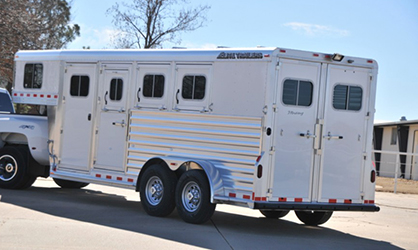Equine Vets Say Events for Horses Without Hendra Protection is Risky
 Australian Veterinary Association
Australian Veterinary Association
The peak body for veterinarians, the Australian Veterinary Association (AVA) is expressing its concern about the health and welfare of unvaccinated horses at equestrian events, including endurance riding.
AVA spokesperson, Dr Ben Poole, said the AVA provides advice based on best practice horse welfare while meeting work health and safety obligations.
“Equine vets work closely with horse owners and event organizers, every day of the year to help make Australian horse sport as safe and successful as possible. However, events that are held exclusively for unvaccinated horses raises serious health and welfare concerns,” Dr Poole said.
“Obviously, for these types of taxing, long-distance events, it’s common for horses to need veterinary care, and in some instances, urgently. This is currently not possible however due to protocols around the treatment of unvaccinated horses.”
Biosecurity Queensland dictates that any unvaccinated horse showing suspected signs of Hendra virus must be quarantined and return a negative result for Hendra before they can receive treatment.
Dr Ben Poole said the vaccine is the most effective way to prevent the spread of the disease and has undergone a rigorous approval process by APVMA to ensure its efficacy and safety. A Parliamentary Inquiry into the vaccine was also conducted last year and recommended that the vaccine is safe and does not have any significant adverse health effects for horses.
“There’s still so much we don’t know about the Hendra virus – even the early signs of this disease can be extremely vague. The fact is that endurance events bring together a large number of horses from a wide range of geographical locations, and this instantly raises the risk of Hendra virus infection if horses have not been vaccinated.”
“Members decide for themselves which events they do or don’t attend. However, based on current workplace health and safety guidelines, our advice to members is that they apply best practice to protect horses and people against Hendra virus infection.”
“Vaccination is the only way to ensure high standards of horse health and welfare while also adequately protecting veterinarians, horse handlers and owners from contracting this deadly virus,” Dr Poole said.










